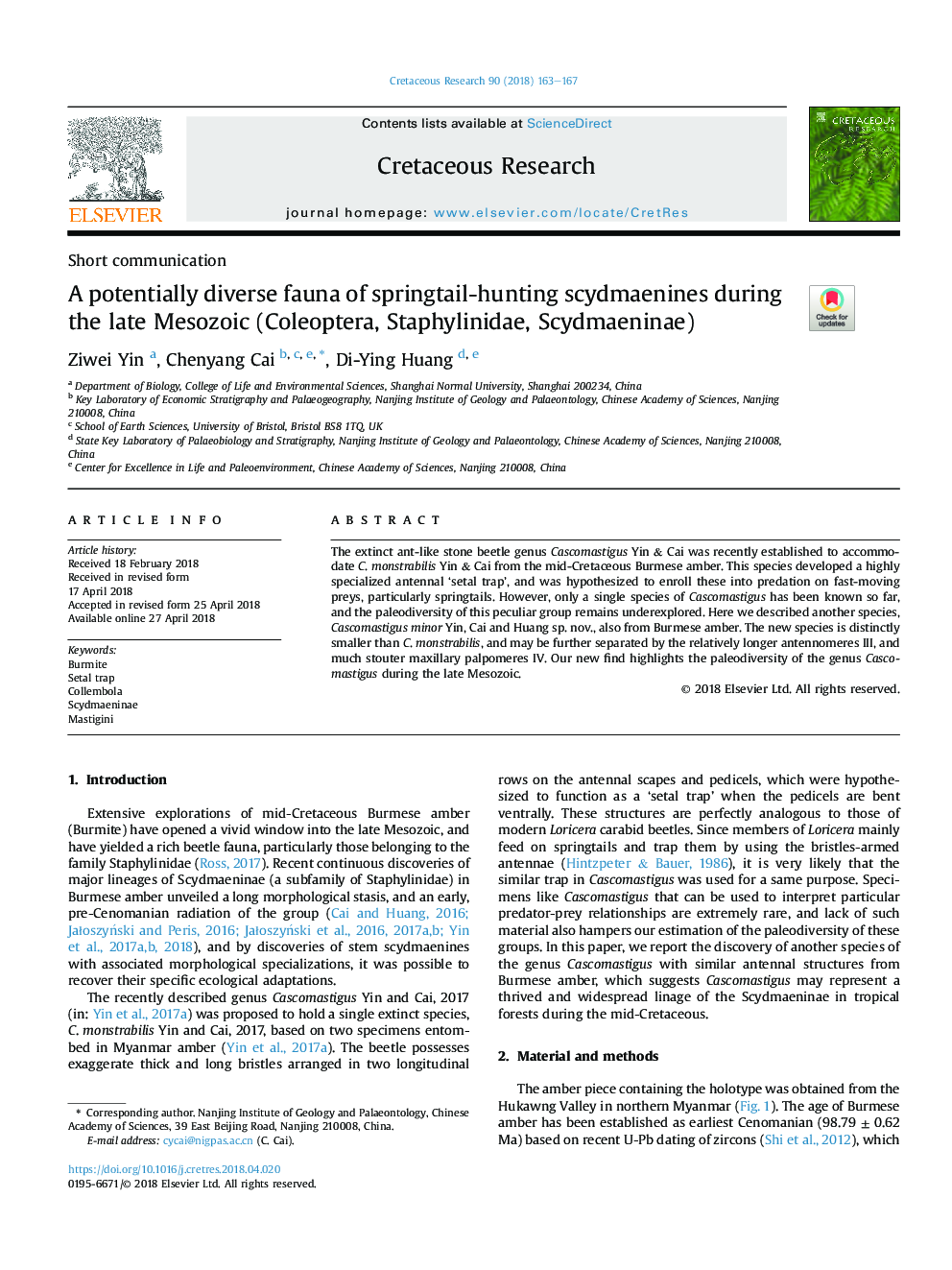| Article ID | Journal | Published Year | Pages | File Type |
|---|---|---|---|---|
| 8916216 | Cretaceous Research | 2018 | 5 Pages |
Abstract
The extinct ant-like stone beetle genus Cascomastigus Yin & Cai was recently established to accommodate C. monstrabilis Yin & Cai from the mid-Cretaceous Burmese amber. This species developed a highly specialized antennal 'setal trap', and was hypothesized to enroll these into predation on fast-moving preys, particularly springtails. However, only a single species of Cascomastigus has been known so far, and the paleodiversity of this peculiar group remains underexplored. Here we described another species, Cascomastigus minor Yin, Cai and Huang sp. nov., also from Burmese amber. The new species is distinctly smaller than C. monstrabilis, and may be further separated by the relatively longer antennomeres III, and much stouter maxillary palpomeres IV. Our new find highlights the paleodiversity of the genus Cascomastigus during the late Mesozoic.
Keywords
Related Topics
Physical Sciences and Engineering
Earth and Planetary Sciences
Palaeontology
Authors
Ziwei Yin, Chenyang Cai, Di-Ying Huang,
